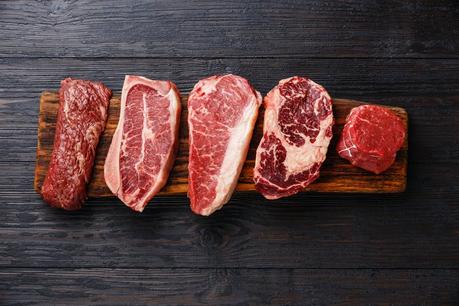
A new study in Critical Reviews in Food Science and Nutrition suggests not eating meat is associated with an increased risk of depression and anxiety. The authors evaluated 18 observational studies including over 160,000 men and women. 11 of the 18 studies concluded that abstaining from meat was associated with poorer psychological health, with a higher prevalence of depression and anxiety.
They also evaluated the scientific rigor of the studies and found the four most rigorous showed depression and anxiety were more common in meat abstainers. Two of the least rigorous studies showed the opposite result - meat eaters had higher rates of depression and anxiety.
As we have mentioned many times, in observational studies, we have to pay close attention to the strength of each association. Any hazard ratio or odds ratio below 2.0 is an incredibly weak finding.
Some of the studies in this analysis did show a potentially meaningful odds ratio of 3.02 and 2.75, comparing non-meat eaters with meat eaters. However, even at this level, it is impossible to rule out that depression and anxiety are related to other characteristics in subjects' lives aside from the meat or lack of meat on their plates.
Maybe meat abstainers were more worried about the environment and animal welfare and this constant concern increased anxiety and depression. That could explain the findings, and has nothing to do with what subjects ate.
The bottom line is that this is incredibly weak science and we need to do better.
This comes on the heels of the World Health Organization (WHO) publishing a recommended diet during the COVID pandemic with a graphic stating simply: "Don't eat saturated fats (fatty meat, butter, palm and coconut oils, cream, cheese, ghee and lard)."
Its recommendation was met with an immediate backlash on social media citing the lack of evidence to support this recommendation.
We have discussed the links between saturated fat consumption and health many times, and have cited multiple resources to demonstrate the lack of sound data supporting the dangers of saturated fat. You can read more in our user's guide to saturated fat and in our guide to red meat.
But the lack of data did not deter the WHO from making a general, sweeping statement. Unfortunately, I am sure many readers took this advice at face value without questioning if there was any scientific validity to the claim.
These two examples highlight the problem we have with making recommendations based on poor data.
Could not eating meat cause more psychological illnesses? Sure, it is possible. Does the new study show that to be the case? No. The data is still weak and conflicting and is not adequate to suggest anything more than a potential association.
Likewise, do we have any evidence that avoiding saturated fat helps the body fight off viral infections? Absolutely not.
We need to demand higher quality research and more responsible dietary recommendations from all players, not just those who take a stand that conflicts with our baseline beliefs.
At Diet Doctor, we hope to be the beacon of light that helps you find your way through the mess created by the media's sometimes questionable reporting of nutritional science and the "expert" nutritional recommendations that are sometimes questionable, too.
Thanks for reading,
Bret Scher, MD FACC
Earlier
Obesity as a risk factor for coronavirus complications Are all diets the same for weight loss and cardiac risk? Bigger breakfasts increase calorie burn rate. Should we care?Start your FREE 30-day trial!
Get delicious recipes, amazing meal plans, video courses, health guides, and weight loss advice from doctors, dietitians, and other experts.
Join now

